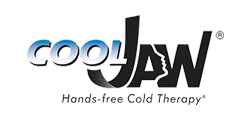Having Reconstructive Jaw Surgery? To assure that your recovery time is short and as complication free as possible, read on…… these are suggestions for the days and weeks after your surgery. Knowing what to expect gives you the power to be prepared.
Technology is on your side, 99.5% of Reconstructive Jaw Surgery no longer requires the jaw to be wired together. Today, only light elastic bands are used to stabilize the jaws. This makes speaking, swallowing and drinking a lot easier.
FAQ
Will I look different?
Your facial appearance will be altered by any type of facial reconstructive surgery, ranging from minimal to significant. The benefits of this type of surgery is improved facial aesthetics. The reasons for facial reconstructive surgery are to provide better facial balance and symmetry and correct positioning of the jaws. Additional cosmetic procedures, to obtain more ideal result, may have been performed based on you and your doctor decision. Be realistic in your expectations. Back to top
is my recovery going to be painful?
There is going to be considerable variation in pain response with patients and it depends on the extent of your surgery, their perception, and psychological state at the time of the Pain medication was prescribed for you at the time of work-up. The pain medication, which is usually prescribed, is a narcotic. If you feel you don’t require medication as strong as a narcotic, you may switch to over the counter pain relievers (i.e. Ibuprofen or Acetaminophen).
It is always better to stay ahead of pain with pain medication and take it as it is prescribed. The directions should be on the bottle with respect to the dosage and time interval between the dosages.
Following this type of surgery, the sensory nerves are not functioning in the immediate post-operative period. Approximately four to seven days following the surgery, the sensory nerves begin to wake up. You may experience an increase in discomfort at that time. This is not unusual and you will need to manage it with additional pain medications, if necessary. If the pain is not managed adequately for you with the pain medication prescribed, please contact your doctor.
Remember, do not drive a motor vehicle, operate machinery, or drink alcoholic beverages while taking prescription pain medication. Back to top
Facial swelling reaches a peak within 36-48 hours after surgery. The swelling does not begin to decrease until about 1 week after surgery. The first seventy percent of the swelling will usually recede by approximately two weeks following surgery, and the last thirty percent of the swelling takes approximately twelve to eighteen weeks to reverse.
In most cases, you may minimize the amount of swelling by applying Cold Therapy to the areas of surgery on your face for the first 24 to 72 hours and you should also keep your head elevated. If you had surgery on both sides, cryotherapy is needed on both sides. If your swelling is secondary to an infection, do not use an ice pack.
A cold gel pack may still be used after the eighteen hour initial post-operative period if that you makes you feel better. You may also use heat following this, if that makes you feel better. Remember, the use of Cold Therapy in the immediate post-operative period it is key to reducing the amount of swelling you may experience. Back to top
Following oral surgery and head/neck surgery, patients may develop an increased oral temperature. This is secondary to an increase in the metabolic rate of the healing tissues. Do not be concerned about the elevated temperature unless the fever goes above 101.5 degrees. If it does, contact your doctor.
Yes. An oral surgical procedure, like any other surgical procedure, requires suturing of the tissues to aide healing. Most of the sutures fall out by themselves over four to fourteen days. Back to top
Soft tissue recovery is a time ridden process, varying markedly between individuals, especially in the short term. 80% of the new structure and function occur within 1 month. The remaining 20% seem to be age related. For example, it is roughly 6 months with 1 extra month for each decade:, 8 months after surgery is required for a 20 year old person. Back to top
Chewing will be a challenge. Your diet after the surgery will be soft only for approximately three to four weeks until the doctor allows you to progress to a soft diet. A soft diet means nothing harder than a sandwich, cake, oatmeal, etc. The swelling may make it difficult to open your mouth wide. However, we do encourage you to open your mouth and move your jaw as directed by your doctor to prevent the muscles from becoming still and frozen. Back to top
Good dental hygiene is essential after oral surgery. It is imperative that you keep your mouth clean following surgical procedures. You may use a small toothbrush with regular toothpaste to clean your teeth and mouth. It may also help to gently rinse your mouth with mild salt water or regular water. Do not use mouth wash, hydrogen peroxide, or a water pick for four weeks following facial reconstructive surgery. Back to top
24 hours following anesthesia or if you are taking narcotic pain medication or any other medications that can alter your coordination, you should not drive or operate any other type of mechanical devices. If you feel well enough and your stamina has returned, driving and doing minor tasks should not be a problem. Back to top
Like driving. If you feel well enough and you are not taking narcotic pain medication, exercise is fine. Keep exercise light for the first two to three weeks following surgery. After which, you may resume a normal exercise regimen. However, you are not allowed to be involved in any activity which could result in something striking your face for approximately twelve weeks following surgery. This includes baseball, basketball, football, diving in a swimming pool, etc. Back to top
No, smoking of any kind after oral surgery interferes with the normal healing process and will increase your chances of developing post-operative complications. Back to top
It is not unusual to become depressed after any surgery, especially with facial surgery. The duration and intensity varies and usually passes as you recover from the surgery and your condition improves.
It is common to have loss of sensation with orthognathic surgery especially when it involves the lower jaw. This means there is normal movement of the lips but there is a loss of lip awareness. Obviously, no one will realize you do not have feeling in the lips except for yourself. The return to sensation is a gradual process and is patchy but it is usually self-limiting. For example, in the young it can take 9 months and for the older patients it will take longer. Unfortunately a small percentage of people never have a return of sensation in areas of their lips
During the surgical procedure, the sensory nerves that supply feeling to your face are identified and protected during the surgical procedure. Once the surgical procedure has been completed, the sensory nerves are re-draped into their normal position. Nerves stop functioning normally when they are moved or manipulated during surgical procedures. It will take weeks to months until sensation begins to return. However, there may be areas on the side of your nose, your gums, your teeth, your lips or part of your chin area that will remain numb or have an altered sensation for an indefinite period of time following surgery. Back to top
Most TMJ problems are caused by improper tooth alignment. If you had a TMJ problem prior to the surgical procedure, it will take time for the problem to stabilize following your facial reconstructive procedure. Sometimes, TMJ problems may become worse following facial reconstructive procedures. The philosophy with respect to the TMJ is from a non-surgical approach, if possible. The use of medications, splints, and physical therapy may be helpful. In some instances, additional surgery on the TMJ may be necessary. However, it may take two years more following facial reconstructive surgery for the TM joint to adapt to the new jaw position. Back to top
The bandage or pressure dressing may be removed three days following surgery. Apply an antibiotic ointment to the small skin incisions on the cheeks three times a day. Back to top
Your visits to the Oral and Maxillofacial Surgeon may have the following sequence upon leaving the hospital: You will be seen weekly,for 6 weeks and radiographic assessment will also be carried out on the first week and then in the 6th week after surgery. There after you will be assessed clinically and radiographically at 3 months, 6 months and then yearly. The reason for this is to assess the healing and the stability of the operation. It should be noted that these are separate from your normal your family dentist visits and those to your orthodontist. Back to top

